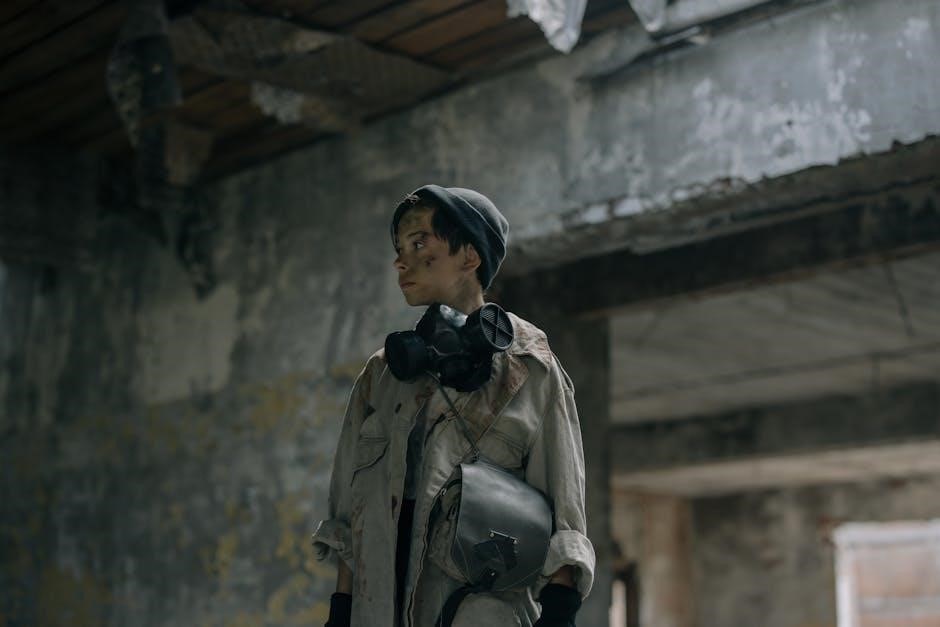
1.1 Overview of the Play
Ruined‚ a Pulitzer Prize-winning play by Lynn Nottage‚ explores the lives of women in the Democratic Republic of Congo during civil war‚ highlighting survival‚ resilience‚ and the commodification of the female body through the lens of Mama Nadi’s brothel‚ a space that serves as both refuge and prison.
Ruined‚ written by Lynn Nottage‚ is a powerful drama set in the Democratic Republic of the Congo during its civil war. The play centers around Mama Nadi’s brothel‚ a complex space offering refuge and exploitation simultaneously. It explores themes of survival‚ resilience‚ and the commodification of women’s bodies‚ shedding light on the harrowing experiences of women in conflict zones.
1.2 Historical Context: The Democratic Republic of Congo
The play is set during the civil war in the Democratic Republic of Congo‚ a conflict marked by extreme violence‚ displacement‚ and human rights abuses. The war created a chaotic environment where armed groups exploited resources and people‚ leading to widespread suffering. This backdrop of instability and violence shapes the lives of the characters‚ particularly the women‚ who endure immense hardship and trauma.
1.3 Themes of War‚ Gender‚ and Survival
Ruined delves into the devastating impact of war on individuals‚ particularly women‚ in the Democratic Republic of Congo. The play highlights gender-based violence‚ including rape as a weapon of war‚ and its profound physical and emotional scars. Survival emerges as a central theme‚ as characters like Sophie‚ Josephine‚ and Salima navigate their shattered lives. Nottage underscores the resilience of women‚ portraying their strength amidst unbearable circumstances while exposing the commodification of their bodies in a war-torn society.
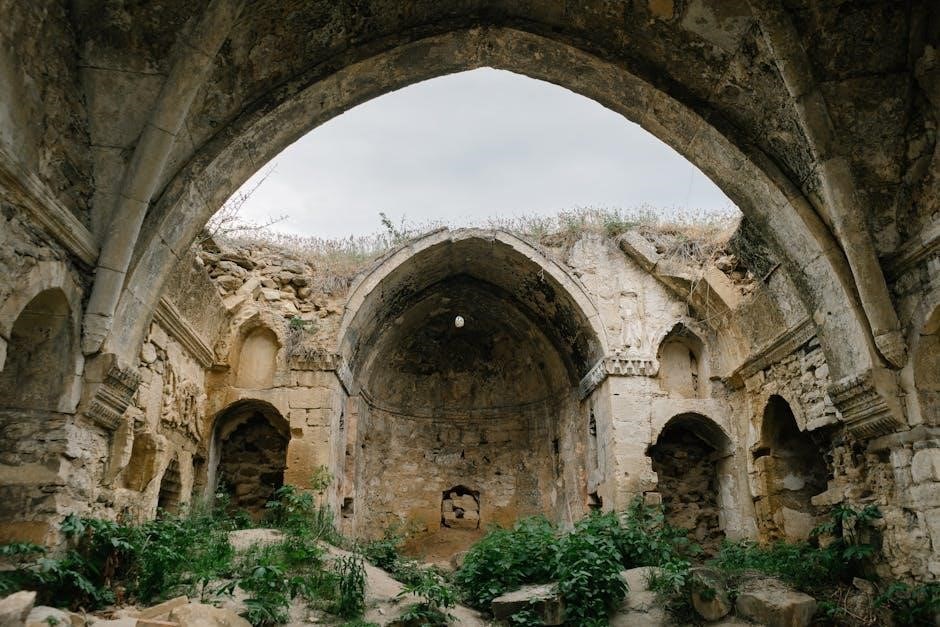
Plot Summary
Ruined is set in a brothel in the Democratic Republic of Congo during civil war. Mama Nadi manages the brothel‚ offering refuge to women like Sophie‚ Salima‚ and Josephine‚ who struggle to survive amidst war’s horrors and societal exploitation.
2.1 Setting: A Brothel in the Congo
The play is set in a brothel in the Democratic Republic of Congo during the civil war. Mama Nadi’s brothel serves as both a refuge and a prison for the women‚ offering survival through exploitation. The setting highlights the harsh realities of war‚ where women’s bodies are commodified‚ and survival is a daily struggle. The brothel’s ambiguous nature reflects the moral complexities of war‚ blending sanctuary with exploitation‚ and survival with sacrifice.
2.2 Main Characters: Mama Nadi‚ Sophie‚ Salima‚ and Josephine
Mama Nadi is the brothel owner‚ a complex figure who provides refuge but also profits from exploitation. Sophie‚ a young woman brutalized by war‚ embodies resilience despite her physical and emotional scars. Salima‚ once enslaved‚ struggles to reclaim her dignity‚ while Josephine‚ bold and outspoken‚ represents a fierce survival instinct. Together‚ these characters illustrate the diverse ways women navigate war’s devastation‚ blending strength with vulnerability in their fight to survive. Their stories intertwine‚ creating a powerful narrative of survival and hope amidst chaos.
2.3 Key Plot Points and Conflicts
The play centers around Mama Nadi’s brothel‚ where women like Sophie and Salima find refuge after enduring brutal violence. Christian brings these women to Mama Nadi‚ highlighting the commodification of their bodies. Sophie’s physical scars and Salima’s emotional trauma underscore the devastating impact of war. Conflicts arise as the women navigate their survival‚ balancing hope with disillusionment‚ while Mama Nadi’s pragmatic yet exploitative leadership complicates their struggle for dignity and freedom amidst the chaos of war.
Themes and Symbolism
Ruined explores themes of resilience‚ survival‚ and the commodification of women’s bodies during war. The brothel symbolizes both refuge and entrapment‚ highlighting the exploitation of women in conflict zones.
3.1 The Impact of War on Women
Ruined vividly portrays the devastating impact of war on women‚ emphasizing sexual violence as a weapon of conflict. Characters like Sophie and Salima bear physical and emotional scars‚ illustrating the brutal exploitation and resilience of women in war-torn regions. Nottage highlights their silent suffering and struggle to survive‚ offering a harrowing yet intimate look at their experiences‚ which resonate globally as a call to action against such atrocities.
3.2 Resilience and the Human Spirit
Ruined underscores the extraordinary resilience of women in the face of war’s brutality. Despite unimaginable trauma‚ characters like Sophie‚ Salima‚ and Josephine exhibit remarkable strength‚ adapting to their circumstances while holding onto fragments of hope. Nottage’s portrayal highlights the human spirit’s capacity to endure‚ survive‚ and even find moments of dignity amidst chaos‚ offering a powerful testament to the indomitable will to live and rebuild in the face of devastation.
3.3 The Commodification of the Female Body
In Ruined‚ Lynn Nottage examines how war commodifies women’s bodies‚ turning them into tools for economic survival. Mama Nadi’s brothel exemplifies this‚ where women are traded for profit‚ their bodies bearing the scars of exploitation. The play critiques the dehumanizing effects of this commodification‚ revealing how women are reduced to mere commodities in a war-torn society‚ their autonomy and dignity stripped away by the harsh realities of conflict and exploitation.
Character Analysis
Ruined delves into the complex lives of Mama Nadi‚ Sophie‚ Salima‚ and Josephine‚ each embodying resilience‚ trauma‚ and survival. Their stories reveal strength amidst vulnerability‚ shaping the play’s emotional core.
4.1 Mama Nadi: The Complex Mother Figure
Mama Nadi‚ the brothel owner‚ is a multifaceted character who embodies both maternal care and ruthless business acumen. She provides refuge to women scarred by war‚ offering survival through prostitution‚ while maintaining strict control over her establishment. Her past as a survivor shapes her decisions‚ blending harsh pragmatism with a deep‚ unspoken empathy. Mama Nadi’s complexities highlight her role as both protector and exploiter‚ navigating a war-torn world where morality is constantly tested.
4.2 Sophie: Trauma and Survival
Sophie‚ a young woman in Ruined‚ embodies the devastating impact of war on individuals. Her traumatic experience of being raped and left unable to bear children underscores the physical and emotional toll of conflict. Despite her pain‚ Sophie’s resilience shines through as she navigates her new reality. Her story‚ intertwined with others in Mama Nadi’s brothel‚ highlights the broader theme of survival and the unyielding human spirit in the face of unimaginable adversity.
4.3 Salima: The Journey from Victim to Survivor
Salima‚ a young woman in Ruined‚ represents the harrowing journey from victimhood to survival. Her experience of being raped and enslaved underscores the brutality of war. Despite her physical and emotional scars‚ Salima finds strength in her determination to rebuild her life. Her story‚ marked by resilience and quiet defiance‚ highlights the profound impact of conflict on women and their ability to endure even in the darkest circumstances.

Style and Structure
Lynn Nottage’s style in Ruined blends raw dialogue with poetic contrasts‚ using stage directions to evoke emotion and silence to emphasize war’s brutality.
5.1 Dramatic Techniques: Dialogue and Stage Directions
Lynn Nottage employs raw‚ evocative dialogue and precise stage directions to convey the brutality of war and the resilience of women. The play’s dialogue is sharp and unflinching‚ reflecting the harsh realities of survival. Stage directions emphasize the physical and emotional toll on characters‚ while moments of silence underscore the weight of trauma. Nottage’s use of poetic contrasts‚ such as Mama Nadi’s pragmatic humor amid devastation‚ adds depth to the narrative‚ making the characters’ struggles visceral and relatable.
5.2 The Use of Language and Dialect
Lynn Nottage incorporates a rich blend of standard English and African dialects to reflect the cultural and linguistic diversity of the Democratic Republic of Congo. The dialogue is infused with local expressions and rhythms‚ creating authenticity and depth. This linguistic diversity highlights the characters’ identities and backgrounds‚ while also underscoring the universal themes of survival and resilience. Nottage’s language choices emphasize the humanity and complexity of the women‚ drawing audiences into their world.
5.3 The Role of Music and Silence
Music and silence in Ruined serve as powerful tools to convey emotion and underscore themes. Nottage uses music to evoke a sense of normalcy and resilience‚ while silence highlights the gravity of the characters’ struggles. The contrast between sound and quiet moments emphasizes the emotional depth of the women’s experiences‚ creating a haunting yet profound atmosphere that resonates with the audience and underscores the play’s central message of survival and hope.
Historical and Cultural Significance
Ruined sheds light on the devastating impact of the Democratic Republic of Congo’s civil war‚ particularly the use of rape as a weapon and its cultural ramifications.
6.1 Rape as a Weapon of War
In Ruined‚ Lynn Nottage portrays rape as a brutal weapon of war‚ highlighting its devastating physical and emotional scars on women. The play exposes how sexual violence is systematically used to dominate and destroy communities‚ leaving women like Sophie and Salima with lasting trauma. Nottage’s portrayal underscores the broader cultural and political implications of such atrocities‚ bringing global attention to the plight of women in conflict zones.
6.2 The Role of Women in Conflict Zones
In Ruined‚ women are central to the narrative‚ depicted as both victims and survivors of war. Nottage highlights their resilience and resourcefulness in the face of unimaginable horrors‚ such as sexual violence and displacement. The play reveals how women navigate the complexities of survival‚ often forced into roles like prostitution‚ while also showcasing their strength in preserving hope and humanity amidst chaos.
6.3 The Brothel as a Sanctuary and Prison
Mama Nadi’s brothel in Ruined serves as both a refuge and a trap for the women. While it offers them a form of survival and protection from the war’s brutality‚ it also confines them to a life of exploitation. The brothel’s duality highlights the tension between safety and enslavement‚ as the women‚ though physically secure‚ remain emotionally and psychologically imprisoned by their circumstances and the societal expectations imposed upon them.
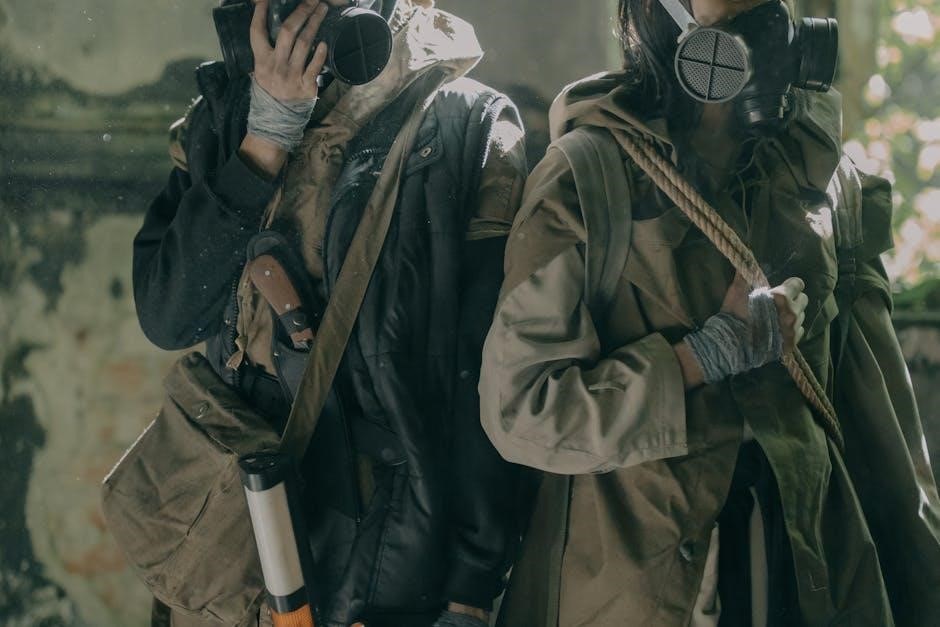
Critical Reception and Awards
Ruined won the 2009 Pulitzer Prize for Drama‚ praised for its unflinching portrayal of war’s impact on women. Critics hailed it as a “powerhouse drama‚” with Linda Winer of Newsday describing it as “shattering and intimate.” The play’s raw honesty and emotional depth earned widespread acclaim‚ solidifying its reputation as a landmark work in contemporary theater.
7.1 Pulitzer Prize for Drama (2009)
Ruined earned Lynn Nottage the 2009 Pulitzer Prize for Drama‚ recognizing its profound exploration of war’s impact on women. The Pulitzer committee praised the play’s unflinching portrayal of resilience and survival‚ calling it a “powerful‚ poignant‚ and harrowing” work. This accolade cemented Nottage’s status as a leading voice in contemporary theater‚ highlighting her ability to address global issues with both sensitivity and strength.
7.2 Reviews and Praise for the Play
Critics widely acclaimed Ruined‚ praising its raw honesty and emotional depth. Linda Winer of Newsday described it as a “powerhouse drama” and a “shattering‚ intimate journey.” The play was hailed for its unflinching portrayal of war’s brutality and its celebration of women’s resilience. Reviewers noted Nottage’s masterful storytelling and her ability to humanize the victims of conflict‚ making Ruined a landmark work in contemporary theater.
7.3 Controversies and Criticisms
Despite its acclaim‚ Ruined faced criticism for its graphic portrayal of violence and sexual exploitation. Some labeled it a “melodrama‚” arguing its intense scenes risked sensationalizing suffering. Others criticized its marketing for focusing on brutality rather than resilience. Additionally‚ the play was banned in some colleges due to explicit content‚ sparking debates about censorship and artistic freedom. Critics also argued that the brothel setting could perpetuate harmful stereotypes about African women. These controversies highlight the play’s complex and provocative nature‚ challenging audiences to confront uncomfortable truths about war and exploitation while raising questions about the ethical responsibilities of storytelling. Its unflinching portrayal of rape as a weapon of war and the commodification of women’s bodies made it a lightning rod for both praise and criticism‚ underscoring the difficulties of addressing such sensitive topics on stage. The play’s ability to provoke such strong reactions is a testament to its power and relevance‚ ensuring its place in ongoing discussions about gender‚ violence‚ and representation in theater. While some viewed it as a necessary expose of atrocities‚ others felt it crossed boundaries‚ leading to a polarized reception that reflects the challenges of depicting trauma and survival in dramatic form. Ultimately‚ the controversies surrounding Ruined demonstrate the delicate balance between shedding light on critical issues and respecting the dignity of those whose stories are being told. The play’s impact is undeniable‚ but its approach has left some questioning whether its methods undermine its message‚ while others argue that such harsh realities must be confronted head-on to inspire change. This tension between critique and admiration underscores the play’s significance as a bold‚ unflinching exploration of war’s devastating effects on women and society at large.
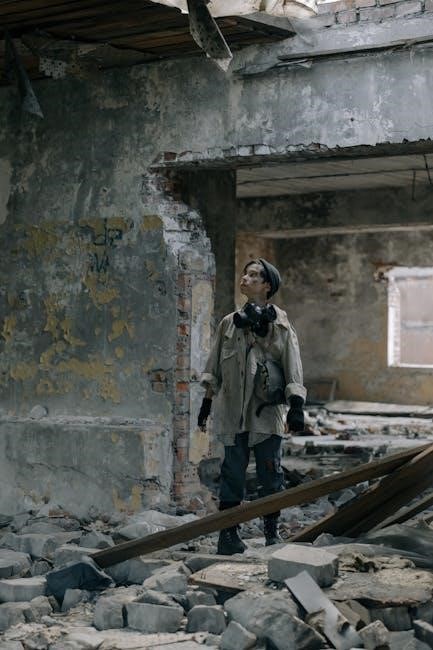
Adaptations and Performances
Ruined has been widely performed globally‚ including successful Broadway and international productions‚ highlighting its universal relevance. Its powerful narrative has made it a cornerstone in theatrical education‚ often used in schools and universities to explore themes of war‚ gender‚ and resilience‚ ensuring its message continues to resonate with new audiences.
8.1 Notable Productions and Casts
Ruined premiered Off-Broadway in 2008‚ directed by Kate Whoriskey‚ and later transferred to Broadway. Notable casts included Chandra Thomas‚ Quincy Tyler Bernstine‚ and Saidah Arrika Ekulona. The play’s success led to numerous productions worldwide‚ earning critical acclaim and awards‚ including the Pulitzer Prize. Its powerful performances and thought-provoking narrative have made it a landmark production in contemporary theater‚ with continued relevance in educational and cultural contexts.
8.2 The Play’s Global Impact
Ruined has sparked global discussions on gender violence and human rights‚ resonating across cultures. Its portrayal of war’s impact on women has made it a vital tool for raising awareness. Performances worldwide‚ including in Africa and Europe‚ have highlighted its universal relevance. Educational institutions increasingly use the play to explore themes of trauma and resilience‚ further amplifying its message and ensuring its continued influence on contemporary theater and social discourse.
8.3 Educational Use in Schools and Universities
Ruined is widely studied in educational institutions‚ offering insights into gender‚ war‚ and resilience. Schools and universities use the play to teach critical thinking about social justice and human rights. Study guides and analyses are available online‚ aiding students in understanding the play’s themes and historical context. Its inclusion in curricula fosters discussions on global issues‚ making it a valuable resource for literature and theater programs worldwide.
PDF Availability and Study Guides
Ruined by Lynn Nottage is available as a PDF on platforms like Scribd and educational websites. Study guides provide summaries‚ analyses‚ and quotes‚ aiding students in understanding the play’s themes‚ characters‚ and historical context‚ making it a valuable resource for academic study and deeper engagement with the material.
9.1 Where to Find the PDF Version
The PDF version of Ruined by Lynn Nottage can be found on platforms like Scribd‚ educational websites‚ and online libraries. It is also available for download on academic resources and forums dedicated to dramatic literature. Additionally‚ some websites offer free access to the play‚ while others may require registration or purchase. The 2024 Scribd version is a popular choice for readers seeking a digital copy of this Pulitzer Prize-winning drama.
9.2 Summary and Analysis Resources
Resources for Ruined include comprehensive study guides‚ summaries‚ and analyses available online. These materials provide insights into themes‚ motifs‚ and character development‚ along with quotes and critical perspectives. Platforms like Scribd and educational websites offer detailed summaries‚ while specific study guides include sections on settings‚ styles‚ and historical context. Additionally‚ some resources feature free quizzes to test understanding of the play’s key elements and themes.
9.3 Study Guides for Educational Use
Study guides for Ruined are widely available for educational purposes‚ offering in-depth analyses of themes‚ characters‚ and historical context. These guides often include discussion questions‚ character maps‚ and essay prompts to facilitate classroom engagement. Many are designed to align with curriculum standards‚ providing teachers with tools to explore the play’s complex themes. Students benefit from structured analyses of Mama Nadi‚ Sophie‚ and other characters‚ enhancing their understanding of the play’s social and cultural significance.
Ruined by Lynn Nottage is a powerful exploration of resilience‚ gender‚ and survival amid war. Winning the Pulitzer Prize‚ it remains a vital commentary on global conflict and human endurance‚ ensuring its continued relevance in addressing contemporary issues of violence and exploitation. Nottage’s work leaves a lasting legacy‚ urging audiences to reflect on the profound impact of war on women and society at large.
10.1 The Legacy of “Ruined”
Ruined has left an indelible mark on theater and social discourse‚ earning Lynn Nottage the 2009 Pulitzer Prize for Drama. Its unflinching portrayal of war’s impact on women has sparked global conversations about gender-based violence and resilience. The play’s legacy lies in its ability to humanize victims of conflict‚ making it a landmark work in contemporary theater and a vital tool for raising awareness about human rights issues worldwide.
10.2 The Play’s Relevance Today
Ruined remains a powerful and timely work‚ addressing ongoing issues of gender-based violence and human rights abuses. Its depiction of war’s impact on women continues to resonate globally‚ offering a stark reminder of the realities faced by many. The play’s themes of resilience and survival are universally relevant‚ making it a crucial tool for sparking conversations about justice‚ equality‚ and the enduring strength of the human spirit in the face of adversity.
10.3 Final Thoughts on the Play’s Message
Ruined delivers a powerful message about survival‚ resilience‚ and the unyielding human spirit. Lynn Nottage’s work sheds light on the exploitation and suffering of women in conflict zones‚ emphasizing their strength in the face of unimaginable horrors. The play serves as a call to action‚ urging global awareness of gender-based violence and the need for justice. Its relevance endures‚ making it a vital commentary on humanity’s darkest realities and the enduring hope for change.
 salesforce admin certification dumps 2020 pdf free
salesforce admin certification dumps 2020 pdf free  exercise band workouts pdf
exercise band workouts pdf  12 days of christmas printable pdf
12 days of christmas printable pdf 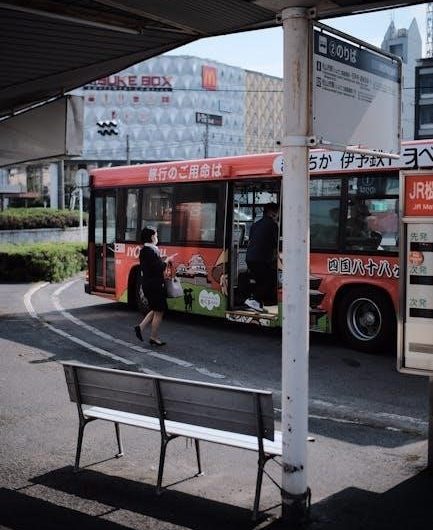 s92 bus schedule pdf
s92 bus schedule pdf  diet plan for breastfeeding mothers to lose weight pdf
diet plan for breastfeeding mothers to lose weight pdf 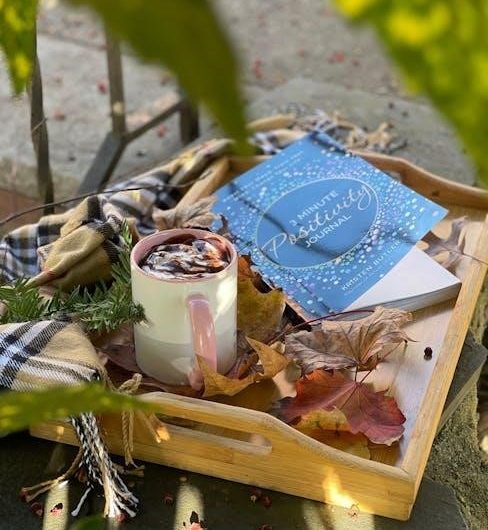 u.s. coin book pdf
u.s. coin book pdf  amc past papers with answers pdf
amc past papers with answers pdf  tv guide monroe michigan
tv guide monroe michigan